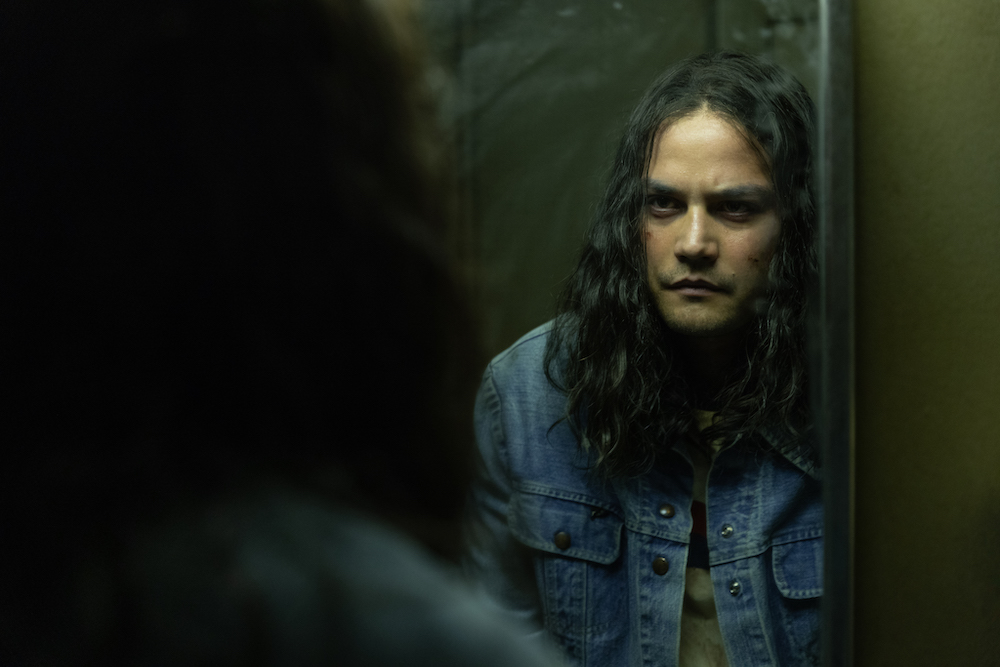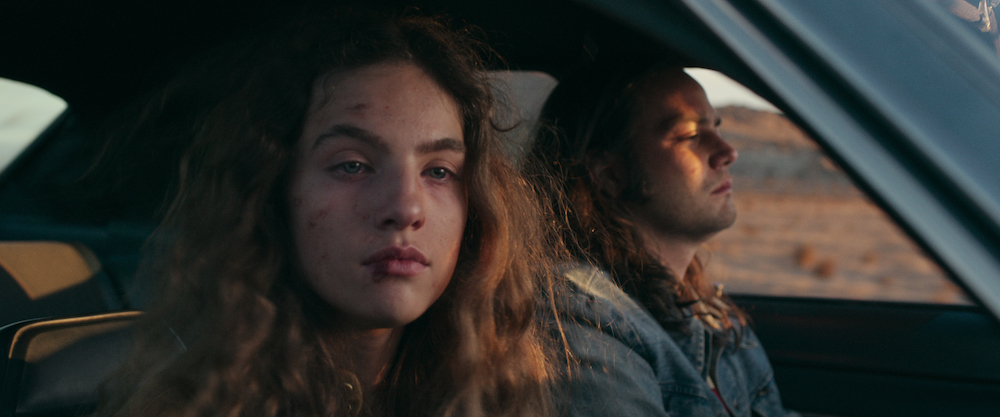“I knew he was risky, but like fuck it, everyone’s risky.” A young woman (Kelley Jakle) poses for pictures on a deserted mountain road in Wyoming in 1977, telling Rodney, a charming, award-winning photographer (Daniel Zovatto), about the boyfriend who walked out on her when she got pregnant. She cries, grateful for his attention, and he listens sympathetically. Suddenly, his expression changes and he attacks her, strangling her, then revives her, then attacks again.
Anna Kendrick directs for the first time and also stars in this gripping drama, written by Ian McDonald and based on the true-life crimes of serial killer and rapist Rodney Alcala in California and New York in the 1970s (Alcala died in prison in 2021, after evading arrest for decades).
The focus is firmly on the women victims, though it’s never prurient or sensational. And there are clever glimpses of the handsome Alcala’s vulnerability. He’s not a one-dimensional monster – he finds it hard to meet his own reflection in the mirror – though extraordinarily creepy, with his long hair and winning smile (pictured below). The hazy atmosphere of the sleazy, stoned Seventies is captured very well. Kendrick, who starred in Alice, Darling in 2022, a film about coercive control (she had been in such a relationship herself) plays Sheryl, a watchful, aspiring actress in Hollywood. She’s tired of the endless interviews with hideously sexist casting directors: “You’re OK with nudity, right?” “No, it’s not for me.” “Oh, I’m sure they’re fine” (looking at her breasts).
The hazy atmosphere of the sleazy, stoned Seventies is captured very well. Kendrick, who starred in Alice, Darling in 2022, a film about coercive control (she had been in such a relationship herself) plays Sheryl, a watchful, aspiring actress in Hollywood. She’s tired of the endless interviews with hideously sexist casting directors: “You’re OK with nudity, right?” “No, it’s not for me.” “Oh, I’m sure they’re fine” (looking at her breasts).
In fact she’s about to give up on the whole shebang – she can barely pay her rent and her only friend is Terry (Pete Holmes), a needy, predatory neighbour, also an aspiring actor – when her agent persuades her to appear on The Dating Game, a TV game show. Sally Field did it, so although it’s beneath her, it’s a good thing and will get her seen, she tells herself, and Terry agrees.
She has to choose between three unseen men by asking questions – she veers from the script, much to the annoyance of the host (a brilliant Tony Hale; Veep) and makes the questions far cleverer, perhaps too clever. Alcala’s answers are the most sophisticated (he studied film at NYU, with, he boasts, Roman Polanski as one of his lecturers) and Sheryl, who did an MFA at Columbia, picks him. Although she goes to a bar with him – the dramatic tension falters in this scene and it's not clear how exactly she gets the measure of him, as he's not overtly threatening – she’s able, just, to escape in time and soon leaves LA for good.
Sheryl's trajectory is interspersed with non-chronological flashbacks to other women victims (though he preys on men as well) which gives the movie a disjointed feel, but also emphasises chillingly the way Alcala was able to carry on regardless for so long. “Do your fucking job!” Laura (Nicolette Robinson) yells at the police in LA. She’s in the TV audience at the Dating Game, recognises Alcala and tries unsuccessfully to inform the producers. Her best friend was murdered after they met him on the beach; she reported him to the cops at the time and returns with her boyfriend to tell them she’s seen him on the show. Of course, the police have no record of the first meeting. In 1971, an air stewardess in New York (Kathryn Gallagher) enlists his help with moving stuff into her loft – “Hey, Ansel Adams,” she shouts across the street – and makes the mistake of laughing dismissively at him and his Polanski stories. And in 1979, a runaway teen, Amy, played by the excellent Autumn Best (pictured above), encounters Alcala when he takes pictures of her, down and out outside a laundromat. You're beautiful, he tells her, always his opening gambit. “Dude, I’m broke as shit,” she tells him insouciantly, and smokes a joint with him as they drive out into the desert.
In 1971, an air stewardess in New York (Kathryn Gallagher) enlists his help with moving stuff into her loft – “Hey, Ansel Adams,” she shouts across the street – and makes the mistake of laughing dismissively at him and his Polanski stories. And in 1979, a runaway teen, Amy, played by the excellent Autumn Best (pictured above), encounters Alcala when he takes pictures of her, down and out outside a laundromat. You're beautiful, he tells her, always his opening gambit. “Dude, I’m broke as shit,” she tells him insouciantly, and smokes a joint with him as they drive out into the desert.
We don’t see the attack, just its aftermath. When Amy, bruised and bleeding, regains consciousness, she acts with amazing aplomb. “Are you OK?” she asks Alcala gently. He lies sobbing beside her, apparently remorseful. “Things got pretty crazy last night,” she says. “Do you want to go back to your place?” She asks him not to tell anyone about what happened because she’d be so embarrassed. He apologises for being rough. “It’s OK, baby,” she says. When she escapes and calls the police, we hear her gasp as she sees Alcala face down on the ground, struggling, handcuffed – a fitting end to this powerful, riveting film.















Add comment